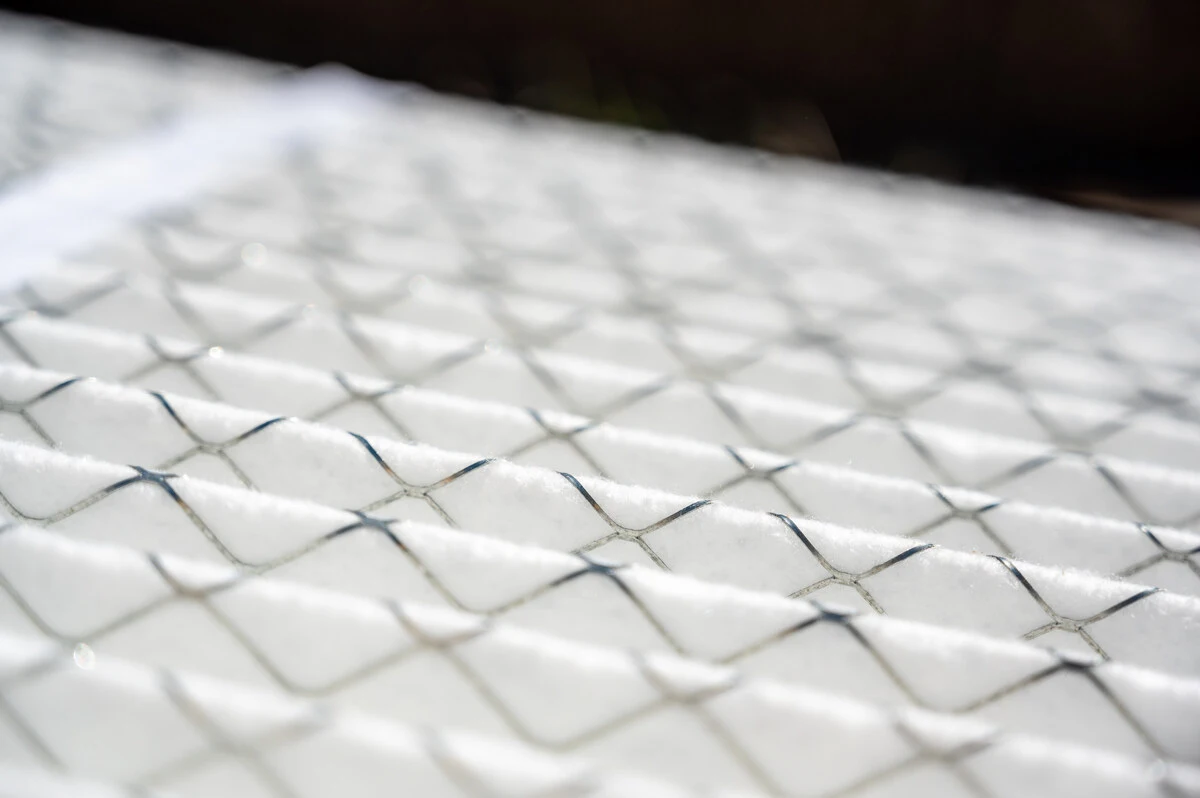How Often Should You Replace An AC Filter?
When it comes to maintaining a comfortable home environment, knowing how often should AC filters be changed and the importance of AC filter replacement is important. On average, it is recommended to replace most AC filters every 30 to 90 days. However, several factors can influence this timeline.
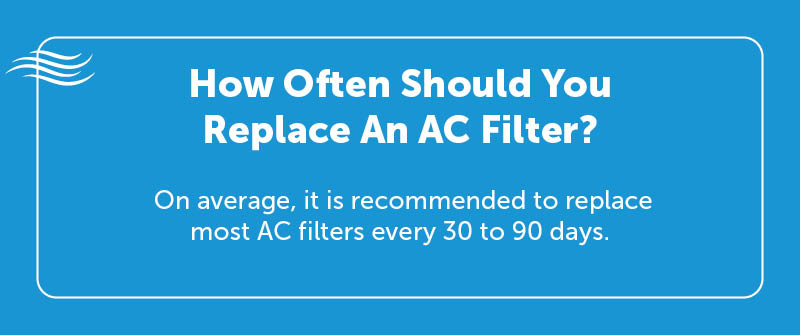
General Guidelines for Replacing AC Filters
For optimal performance and air quality, check your AC filter every month. Regularly changing the filter not only helps maintain efficient HVAC operation but also improves indoor air quality by preventing issues such as pressure drops and restricted airflow. In general, a good rule of thumb is to change the filter every 90 days. However, various conditions may necessitate a more frequent replacement.
What are Variations by Type of AC System?
The type of cooling system you have also impacts how often you should change its filter. For instance, traditional HVAC systems typically require filter changes every three months. In contrast, high-efficiency systems might need more frequent changes, especially if they use denser filters.
Frequency Recommendations for Different Conditions
How do I know if my AC filter needs replacing? Different environments can significantly affect filter lifespan. If you live in a city with high pollution levels or an area with a lot of construction, poor air quality can necessitate more frequent filter changes. Pets also contribute to quicker filter clogging. If you have pets, consider changing your air filter every 60 days.
Impact of Seasonal Changes on Filter Replacement Schedule
Seasonal changes also play a role. For example, during hot summers or cold winters, when your air conditioning and HVAC system runs more frequently, you should inspect and potentially change the filter more often. Those living in humid regions like Florida might also need to replace filters more frequently due to moisture and additional air particulates.
Overall, being proactive about when to replace the air filter in your system ensures better air quality and system efficiency. If you’re unsure, consult your AC unit’s manual or reach out to a professional for tailored advice.
How Do I Know If My AC Air Filter Needs Replacing?
How do I know if my AC air filter needs replacing? It’s a common question and an important one for maintaining your AC system’s efficiency. Knowing when to replace the HVAC air filter in your home isn’t just about ensuring good air quality but also about keeping your AC running smoothly.
What are signs that an AC filter needs replacing?
One of the tell-tale signs that your air filter needs replacing is reduced airflow from your vents. If you notice that your AC system isn’t cooling your home as it should, a dirty filter could be the culprit. Another sign is increased dust accumulation in your living space. If you find more dust on your furniture and surfaces, it’s time to check the filter. Additionally, higher allergy symptoms among household members can indicate that your filter is contaminated and not effectively trapping particles. Remember, to improve air quality and system efficiency, it’s essential to change your air regularly.
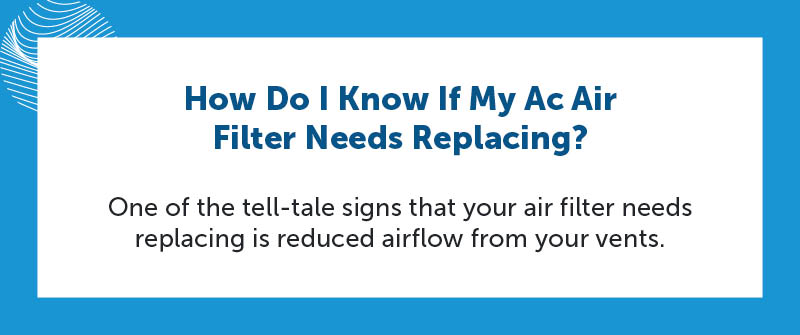
How to inspect and evaluate the condition of an air filter
Inspecting your air filter is straightforward. Remove the filter from its slot and hold it up to a light source. If the filter shows only a subtle layer of dirt while still revealing the filter’s material, it indicates that the filter is functioning properly and does not yet require replacement. If you can’t see the light passing through the filter or it appears visibly grey and clogged, it’s time for a replacement. Additionally, check for any signs of mold or mildew, which are indicators that you need a new filter immediately.
Impact of a dirty filter on AC performance
A dirty filter can have a significant impact on the performance of your AC unit. It can reduce airflow, causing your system to work harder and consume more energy, ultimately increasing your utility bills. Additionally, a clogged filter can lead to overheating and potential damage to the system’s internal components, resulting in costly repairs and negatively affecting indoor air quality.
Recommendations for regular checks
To avoid these issues, it’s advisable to check your air filter monthly, especially during peak usage times like summer. Cheaper fiberglass filters, in particular, should be replaced every 30 days as they trap dirt and allergens, but their efficiency diminishes over time. Regular checks can save you money and keep your air conditioner running efficiently, ensuring that your home remains comfortable year-round.
Do Air Filters Last 3 Months?
One of the most common questions homeowners ask is, “Do air filters last three months?” The answer largely depends on the type of HVAC filter you are using, your living conditions, and how frequently you are changing air filters and using your HVAC system.
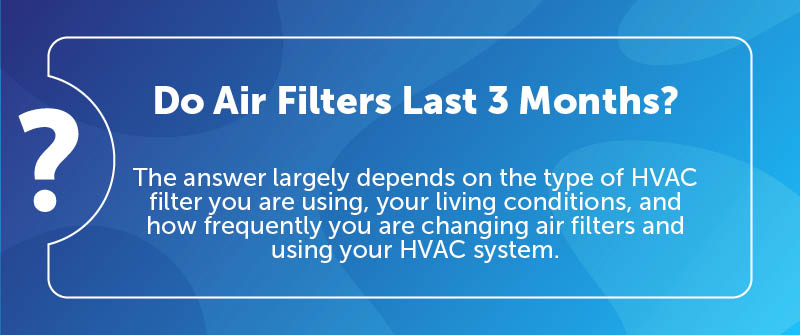
Expected Lifespan of Different Types of Air Filters
Cheaper fiberglass filters are not all created equal. For example, a basic fiberglass filter generally needs to be replaced every 30 days. On the other hand, pleated air filters, which are more effective at trapping dust and allergens, can last up to 90 days. Higher-end options like HEPA filters could also have a longer lifespan, ranging from 6 months to a year, depending on the make and model.
Factors Affecting Filter Longevity
Several factors can influence how long your HVAC filter will last. If you have pets, you will likely need to replace your filters more frequently due to pet dander and hair, which contribute to poor air quality. Living in an area with high levels of pollution, like a city, will also cause your filters to clog up faster. Additionally, running your HVAC system constantly, either for heating in the winter or cooling in the summer, will shorten the lifespan of your filters.
Pros and Cons of Different Replacement Intervals
Replacing your air filter every month ensures maximum efficiency and air quality but can be costly and time-consuming. Sticking to a 3-month replacement schedule strikes a balance between air quality and maintenance effort but may not be ideal for every household, as neglecting dirty air filters can lead to restricted airflow. Filters designed to last six months or longer offer less frequent maintenance but could become less efficient over time, potentially causing your system to work harder and use more energy.
Guidelines for Extending Filter Life
To make your HVAC filter last longer, consider using higher quality filters that are designed for extended use. Regularly dusting and vacuuming your home will also help reduce the amount of debris that gets trapped in your filter. Installing an air purifier can take some of the load off your HVAC system’s filter, helping it to last longer and improve indoor air quality. The EPA recommends changing your air filter often citing, “no filter or air cleaner, regardless of its rating, will be effective if it is not properly maintained.“
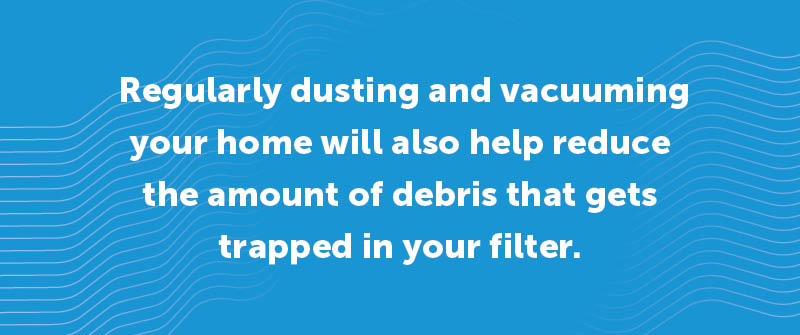
How Long Do 4-Inch HVAC Filters Last?
When it comes to your home’s HVAC air filter, knowing the lifespan of your filters is essential for optimal performance and air quality. So, how long do 4” HVAC filters last compared to other types? Let’s dive into the details.
Lifespan of 4-inch vs. 1-inch HVAC Filters
One of the most common questions homeowners ask is how long specific HVAC filters last in their cooling system. In general, 4-inch filters tend to last longer than 1-inch filters. While a standard 1-inch filter may require replacement every 1-3 months, a 4-inch filter can often last between 6 months to a year. This extended lifespan makes 4-inch filters a more convenient option for those who prefer less frequent changes.
Comparison of Filter Types and Brands
The longevity of your HVAC filter can also be impacted by the brand and type. Higher-quality filters often incorporate advanced materials and designs that enhance their durability, unlike cheaper fiberglass filters or even washable air filters, which typically require replacement every 30 days due to their shorter lifespan and less effective filtration capabilities. For example, pleated filters generally last longer than non-pleated ones because they have a larger surface area to trap more particles. Brands that invest in higher-grade materials often provide more reliable, longer-lasting filters. When choosing a filter, it’s worth considering both the type and the brand for the best performance over time.
Maintenance Tips to Improve Filter Longevity
Air conditioning filter’s lifespan can be significantly extended with proper maintenance. Regularly inspecting your filters for dirt and debris can help you anticipate when to replace them. Additionally, ensuring that your HVAC system runs efficiently by scheduling regular tune-ups can reduce strain on the filters, prolonging their life. Simple actions like cleaning around your vents and maintaining a clean home environment can also contribute to longer-lasting filters.
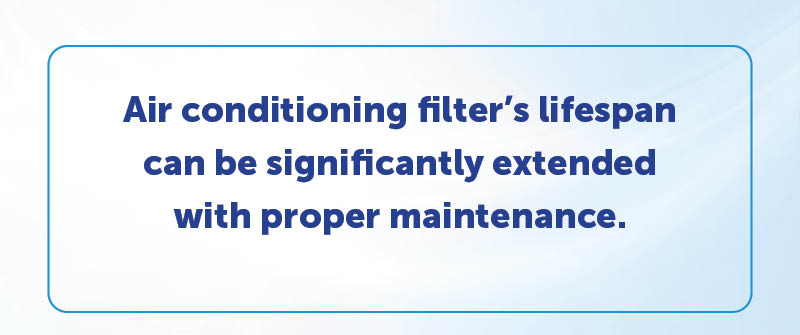
Cost Considerations for Higher-Quality Filters
How much should an AC filter cost? Though higher-quality filters initially cost more, they often represent better value in the long run. Since better-quality filters tend to last longer, you’ll need to replace them less frequently, reducing your overall expenses. Additionally, high-grade filters can enhance your HVAC system’s efficiency, potentially lowering your energy bills. Investing in a more durable filter can also mean fewer issues with your HVAC system and a healthier indoor environment.
Overall, 4-inch HVAC filters offer a longer lifespan and, with the right care, can be a more economical and efficient choice for maintaining good indoor air quality in your home. Browse our extensive collection today!

